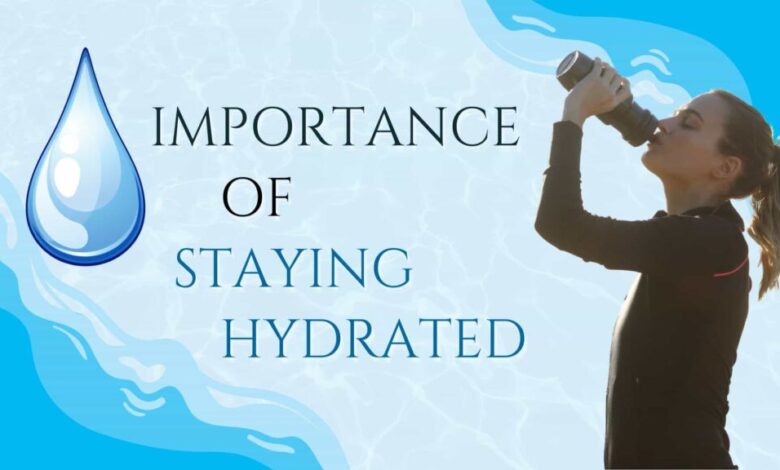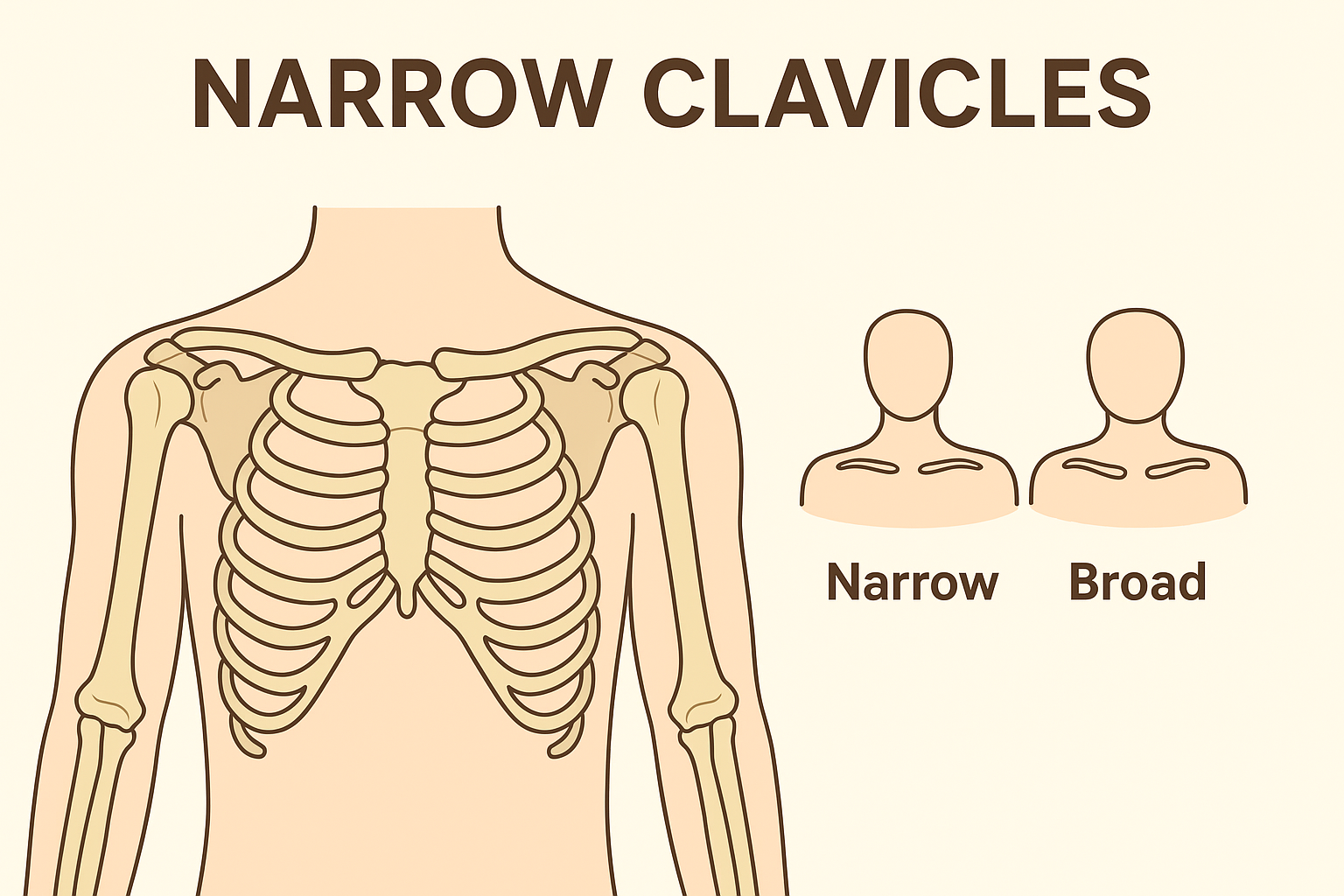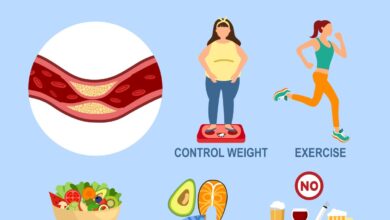Importance of Hydration: Why Water Is the Key to a Healthier Life

Have you ever noticed how sluggish you feel after skipping water for a few hours? Or how a simple glass of water can instantly refresh you? It’s easy to overlook hydration in our busy lives, yet it plays one of the most crucial roles in keeping us healthy.
Water is not just about quenching thirst—it’s the fuel that supports nearly every function in the body. From carrying nutrients to regulating temperature, hydration is at the heart of overall wellness. But despite knowing this, many people still underestimate how important it really is.
So, why is hydration so vital, and what happens when we don’t get enough? Let’s dive deeper into the importance of hydration and explore how it impacts your daily life.
Understanding the Role of Water in the Body
Our bodies are made up of about 60% water. That alone shows just how vital hydration is. Every cell, tissue, and organ depends on water to function properly. Without enough fluid, processes like digestion, circulation, and even temperature control can become disrupted.
Think of water as the body’s silent worker. It doesn’t call attention to itself, but it makes everything else run smoothly. When you stay hydrated, you’re essentially giving your body the tools it needs to perform at its best.
Hydration and Energy Levels
Have you ever felt drained even after a full night of sleep? Sometimes, fatigue isn’t about rest—it’s about hydration. Dehydration causes your body to work harder, which leads to lower energy and slower brain function.
When you drink enough water, oxygen and nutrients flow more efficiently through your bloodstream, fueling your muscles and brain. That’s why athletes, students, and professionals all benefit from staying hydrated—it keeps both body and mind sharp.
How Hydration Affects Brain Function
Your brain is especially sensitive to changes in hydration. Even mild dehydration can affect mood, memory, and focus. Studies show that losing as little as 2% of body water can cause cognitive decline, making it harder to concentrate and solve problems.
Hydration also supports the production of neurotransmitters, the chemicals that allow brain cells to communicate. Without enough water, you may feel irritable, forgetful, or mentally foggy. Simply keeping a water bottle nearby can prevent this.
Hydration and Physical Performance
If you’ve ever tried working out while dehydrated, you probably noticed how much harder everything felt. Water regulates body temperature, lubricates joints, and helps muscles contract efficiently. Without enough of it, performance drops, endurance shortens, and the risk of cramps or injuries increases.
That’s why proper hydration is considered a key factor in athletic success. Drinking water before, during, and after physical activity helps maintain balance, reduce fatigue, and speed up recovery.
The Connection Between Hydration and Digestion
Water is a major player in digestion. It helps break down food, absorb nutrients, and keep things moving smoothly through your digestive tract. Without it, constipation and bloating are much more likely.
Drinking water before meals can also support appetite control. Sometimes our bodies confuse thirst with hunger, leading us to eat when we actually need hydration. Staying hydrated helps regulate this balance, which is especially useful for those managing weight.
Skin Health and Hydration
It’s no secret that hydrated skin looks healthier. When your body has enough water, your skin appears smoother, more elastic, and radiant. On the other hand, dehydration often shows up as dryness, dullness, or even premature wrinkles.
While lotions and creams can help externally, hydration from within is far more effective. Drinking enough water nourishes skin cells from the inside out, helping maintain a natural glow.
Hydration’s Role in Detoxification
Your body is constantly working to flush out waste and toxins. Kidneys, in particular, depend on adequate hydration to filter blood and produce urine. Without enough water, this process slows down, increasing the risk of kidney stones or urinary tract infections.
Water also supports liver function and the lymphatic system, both of which play major roles in detoxifying the body. In short, hydration keeps your system clean and running efficiently.
Temperature Regulation Through Hydration
Have you ever noticed how you sweat during hot weather or exercise? That’s your body’s way of cooling itself down. Water is essential for this process.
When you’re dehydrated, your body struggles to regulate temperature, which can lead to overheating, heat exhaustion, or even heat stroke in extreme cases. Staying hydrated ensures that your cooling system works as it should, protecting you from serious health risks.
Hydration and Heart Health
Your heart pumps about 2,000 gallons of blood daily, and water plays a huge role in keeping that circulation smooth. When you’re dehydrated, blood volume decreases, making it harder for the heart to pump efficiently.
This strain can cause faster heart rates and lower blood pressure, which over time may increase cardiovascular risks. By staying hydrated, you make your heart’s job easier and keep your circulatory system in better shape.
How Much Water Do You Really Need?
The classic advice is “eight glasses a day,” but hydration needs vary depending on age, activity level, diet, and climate. A more accurate guideline is to listen to your body. Thirst is an obvious sign, but so is the color of your urine—pale yellow usually means good hydration, while dark yellow suggests you need more fluids.
A general rule is around 2.7 liters daily for women and 3.7 liters for men, including fluids from food. Remember, fruits, vegetables, soups, and even tea or coffee contribute to hydration.
Signs You May Be Dehydrated
Recognizing dehydration early helps prevent complications. Common signs include:
- Dry mouth or lips
- Headaches
- Dizziness or lightheadedness
- Dark urine
- Fatigue
- Muscle cramps
If you experience several of these symptoms, increasing your fluid intake usually helps quickly.
The Role of Electrolytes in Hydration
While plain water is usually enough, sometimes your body needs electrolytes too. Electrolytes—like sodium, potassium, and magnesium—help maintain fluid balance in your cells.
During intense exercise, illness, or heat exposure, electrolyte-rich drinks can be helpful. Just be cautious with sugary sports drinks; natural options like coconut water or electrolyte tablets often work better.
Hydration for Different Lifestyles
Hydration needs can change depending on lifestyle:
- Athletes – Require more water due to sweating and physical exertion.
- Office workers – Sitting indoors may reduce thirst signals, so reminders help.
- Elderly adults – Often have a weaker sense of thirst, making dehydration more common.
- Children – Active playtime increases fluid needs, especially in hot climates.
Adjusting water intake to your lifestyle ensures better health and performance.
Creative Ways to Stay Hydrated
Not everyone enjoys drinking plain water all day, and that’s okay. There are plenty of creative ways to boost hydration:
- Add slices of lemon, cucumber, or berries for natural flavor.
- Enjoy herbal teas, which count toward fluid intake.
- Eat water-rich foods like watermelon, oranges, cucumbers, and lettuce.
- Carry a reusable bottle to track how much you’re drinking.
These small tweaks make hydration easier and more enjoyable.
Myths About Hydration
There are several myths around hydration that need clearing up:
- Myth 1: Only water hydrates. Truth: Foods and other beverages also contribute.
- Myth 2: If you’re thirsty, you’re already dehydrated. Mild thirst is normal, not always harmful.
- Myth 3: Everyone needs 8 glasses a day. Needs vary by person and lifestyle.
Understanding these facts helps you avoid unnecessary stress about exact amounts.
Hydration and Mental Health
Interestingly, hydration also plays a role in emotional well-being. Dehydration can increase feelings of anxiety, irritability, and stress. When your brain is deprived of water, emotional regulation becomes harder.
By staying hydrated, you support both physical and mental balance. It’s a simple act with a surprisingly powerful effect on mood and resilience.
Building a Hydration Habit
Making hydration a natural part of daily life is easier when you create small, consistent habits. Try these tips:
- Drink a glass of water first thing in the morning.
- Pair water breaks with routine tasks, like checking emails.
- Use apps or alarms as reminders.
- Always keep water nearby, whether at work, in the car, or at home.
The more automatic hydration becomes, the less you’ll have to think about it.
When to Be Cautious with Hydration
While dehydration is a bigger concern, drinking too much water too quickly can also be harmful. This rare condition, called hyponatremia, occurs when excess water dilutes sodium in the blood. It’s more common in endurance athletes who overdrink during events.
The key is balance—drink steadily throughout the day rather than forcing excessive amounts at once.
Conclusion: Water as Life’s Essential Fuel
Hydration may seem simple, but its importance cannot be overstated. From brain function and digestion to energy levels and skin health, water affects nearly every aspect of well-being.
By making hydration a daily priority, you support your body’s natural systems, prevent health problems, and even improve your mood and performance.
So the next time you feel sluggish, unfocused, or tired, ask yourself: Have I had enough water today? Sometimes, the most powerful solutions are also the simplest.



